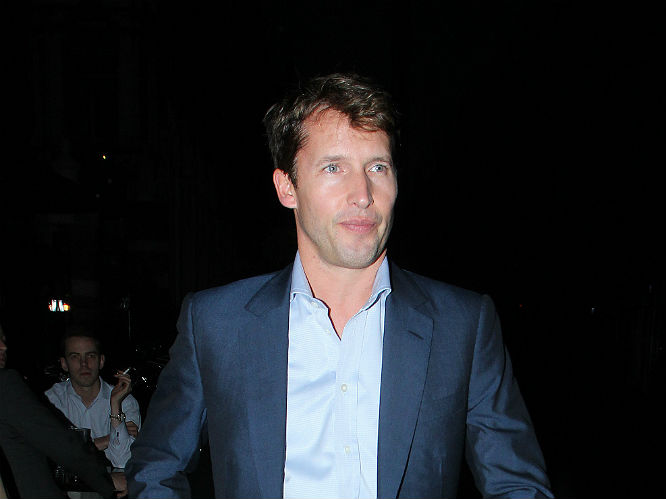More about: MetricYears & YearsBleachers
"Woke up early to get work done," tweeted Mitski a few days after her brilliant NPR Tiny Desk session had gone online. "Then casually read the comments on my video now I never want to do anything ever again brb going back to bed." To any musician, providing they are alive and have access to the internet, Mitski's experience will be a depressingly familiar one.
In fact, shortly after she wrote the tweet, Girlpool's Harmony Tividad replied, "Is it NPR? Because to be honest, I feel you." Looking at the YouTube comments for both artists' sessions, it is hard to imagine how they continue to stick their heads above the parapets - so desperate are people to shoot them down.
It's a strange paradox. Musicians, whose career relies on a naturally heightened sensitivity and emotional rawness, must learn to close themselves off, grow a thicker skin, numb themselves to the words of others.
"If I go looking for it, I can find it," Years & Years' Olly Alexander tells Gigwise. "If we do a big TV show, I have to not look at Twitter, because I find that big TV shows are when people want to tweet how much they hate you. I didn't want to watch Graham Norton because I was too scared, but then I looked on Twitter and people were saying how terrible I was, and I got really sad. Then I sort of realised that's just what happens."
After topping BBC's Sound of 2015 poll thrust Years & Years into the limelight, Alexander was quickly forced to grow a thicker skin. "It's weird how quick it does grow as well," he muses, "because now I read stuff - obviously stuff can still be really hurtful - but when people say a mean thing about me, like I can't sing or the music's crap, it used to really hurt, but now it's sort of gets lost in the noise of everyone else's voices. You manage to kind of deflect it a bit better. You get better at it."
Watch Years & Years perform on Graham Norton below
But why should coping with online bullying be a part of the job description in the first place? Why is it that people are so flippantly cruel online in a way they never would be in real life? "If we were to physically represent the internet and the behaviour," says Metric's Emily Haines, "like, take a room, and have people act out what they're doing and saying, it would just be hell."
"The word trolling is extremely misleading," adds the band's guitarist Jimmy Shaw. "Because a troll is a cute little doll with, like, the little hair that goes up. I'd love to see a troll, but it actually should be called abuse because that's what it is. It's called abusive behaviour and you should not do it."
Chvrches' Lauren Mayberry took a similarly hard line on trolling in a recent interview with Channel 4 News - after she was subjected to misogynistic abuse on a 4chan forum, which was, bafflingly, linked to her on Twitter by one of its participants. "People say, 'Don't feed the trolls, you're just making it worse', and maybe to an extent, because we've spoken out against it more, I've painted a target on my back... But to me, it's not necessarily you responding that trolls want. They want to scare, and they want to intimidate, and to silence people, so ignoring it to me doesn't make a difference." Underneath this video, with eight thumbs up to its name, is the comment, "Stupid bitch."
As for the psychological effect it's had, Mayberry - like Olly Alexander - has developed coping mechanisms. "I think initially, when we first started to become more visible, it did take a psychological toll," she says. "Someone tweeted me the other day, 'If you can't learn to deal with this, stick a gun in your mouth before the record even comes out. I have one, I'll give it to you' - and personally, that's horrifying, because if someone put that through your door, you could legitimately go to the police about that. But I guess in my head, I was like, 'This is on the internet, people can see it, how would the band persona respond to this?' It's helpful to have that I think."
Watch Mitski's NPR Tiny Desk Concert below
"If you look at Twitter and 30 people say nice things," Bleachers' Jack Antonoff tells us, "and one person says you're an asshole, you're gonna focus on that." Even so, he's found it helpful to embrace the most unpleasant comments, to turn them into something to be laughed at, as a way of reclaiming control. "My favourite one I ever got was someone once tweeted at me, 'You bear a great Russian name but act as a Jew and a pervert. Who are you?' The greatest tweet of all time. I think I retweeted it like a hundred times. I don't engage with shitty people, but I will laugh about it for a long time."
Frightened Rabbit's Scott Hutchison took a similar approach when he decided to print abusive tweets onto T-shirts, and sell them as merch. "It's amusing for us," he explains, "because I generally don't give a shit if anyone doesn't enjoy the way that I look, but there is the other side where if there's someone slightly less secure in their chubbiness, then they could be more more affected by that - the things that trolls throw at more sensitive people can be really damaging.
"It's little people trying to exert some power. Like Lauren [Mayberry], I thought it was time to take the obvious power that we have, and use it with the mass of people who are going to get behind us. That's the heartening thing that's been so wonderful, we've turned it into a positive."
"And I'm sure," he concludes, "the troll will look back at it in ten years' time and think 'What a fucking idiot I was'."
- For more information tackling online bullying, visit the Ditch The Label charity here

There is definitely something to be said for ignoring online trolls. "Don't feed the trolls" goes the old (well, fairly new) saying, and we respect that. It's just, sometimes ignoring someone doesn't make them go away. Sometimes it's much more satisfying, or even important, to stick your head above the parapet and put bullies in their place. These musicians opted to do just that.

James Blunt: While some artists whose reputation suffers something of a credibility crisis fight to change people's opinions, Blunt has instead chosen to embrace his reputation as... a somewhat naff musician. He frequently responds to his detractors on Twitter - even if they haven't directly @ed him. "I want to kick James Blunt... repeatedly... I don't know why," tweeted one user, to which he replied, "Easy spelling mistake as K and L are right beside each other."

Frightened Rabbit: After the band found themselves at the receiving end of an internet troll who called the band "meat eaters fatties", "furry brick built men" and said they were "built like a cruise ship," Scott Hutchison designed a t-shirt with the insults emblazoned proudly upon it.

Janelle Monae: Monae is not one to suffer fools gladly. When a male fan tweeted her saying, "Stop being so soulful and be sexy... tired of those dumbass suits," Monae promptly responded, "Sit down. I'm not for male consumption."

Katy Perry: As we've discovered today, Katy Perry did not, in fact, send a message to a fan's ex-boyfriend calling him a "cunt." What she did do though, was take the fan's phone, read a Whatsapp message saying, "Lol I heard she can't sing live at all," and send a smiling selfie in response.

Azealia Banks: Banks' Twitter is truly a minefield. She flits between insightful social commentary and startlingly rude comebacks with reckless abandon. One thing's for sure - she's never one to let a rude comment slide. When a fan tweeted her saying, "If we're bringing up old shit let's talk about your music career", Banks replied with, "or we can talk about that pus filled acne on your chin... Which do you prefer?" We don't condone personal attacks, but the Twitter user's skin was completely clear, so we assume Banks' comment was tongue-in-cheek.

Chvrches: To call the online abuse that Lauren Mayberry has experienced "trolling" is to somewhat undermine how truly heinous it is. Nonetheless, she has repeatedly stood up against the misogynistic comments aimed at her, screenshotting a rape threat and writing, "Women will not be shamed and silenced and made to disappear. I am not going anywhere. So bring it on, motherfuckers. Let's see who blinks first."

Metallica: After news that Metallica were headlining Glastonbury was met with a mixed response last year, the band decided to celebrate by taking a leaf out of Frightened Rabbit's book, and printing the best anti-Metallica quotes on a t-shirt and selling them at the festival. Incidentally, the quote at the top of the t-shirt comes from Gigwise's interview with Mogwai.

Taylor Swift: When you're as famous as Taylor Swift, it's sometimes necessary to take preemptive action against trolls. As such, she decided to buy the domain names TaylorSwift.porn and TaylorSwift.adult, in order to stop anyone with unsavoury plans from getting their hands on it. It's a sad state of affairs that she felt it necessary.

Tinashe: When US singer tweeted her dislike for "internet trolls and bullies", a Demi Lovato superfan replied, "Are you mad that you'll never be like us? Stop whining and make a career!" Tinashe's response? The grammatically questionable but undeniably snappy, "I'm on a world tour who is u." It got nearly 1,000 retweets.
More about: MetricYears & YearsBleachers


